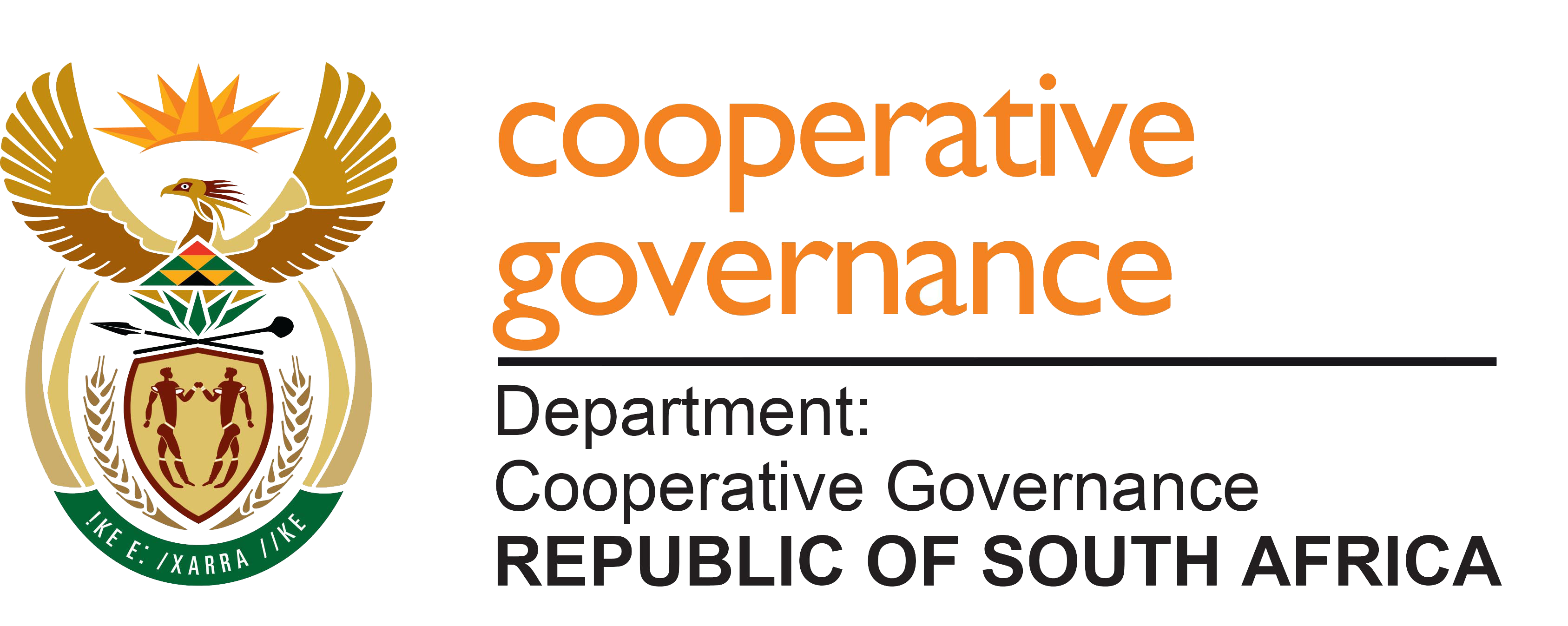MEDIA STATEMENT
23 July 2019
The Deputy Minister of Cooperative Governance and Traditional Affairs (COGTA), Mr Parks Tau, delivered a Keynote Address at the Local Government Sustainable Development Goals (SDG) Symposium.
This symposium followed the High-Level Political Forum (HLPF) on Sustainable Development held at the United Nations headquarters in New York from 16 – 19 July 2019. In support of the idea of leaving no one behind, the HLPF was convened under the theme – Empowering people and ensuring inclusiveness and inequality.
Judging by the discussions on the first day, the symposium taking place from 25 – 26 July 2019 in Ethekwini, succeeded to highlight the critical role of local governments in contextually translating and aligning SDGs with their planning and development processes, as well as foster a whole-of-society approach and endorse the SDGs as an enabling framework that can effectively be aligned with the Integrated Urban Development Framework (IUDF), National Development Plan (NDP) and municipal Integrated Development Plans (IDPs). Delegates had an opportunity to reflect on the pace towards the implementation of the SDGs and also afforded time for knowledge sharing and collaboration around the SDGs in South Africa.
By adopting the 2030 Agenda, member states have committed to leave no one behind in their implementation of all the 17 SDGs. As everyone embarks on this collective journey, the importance of ensuring that the goals and targets are met for all nations and peoples and for all segments of society. The specific needs of vulnerable countries, including African countries, least developed countries, landlocked developing countries, small island developing states, countries in situations of conflict and post-conflict countries, need to be addressed, so that each of them can enjoy sustained, inclusive and sustainable economic growth and social progress.
Pledging to leave no one behind is a call for partnerships across all sectors to join hands for the dignity of people. This commitment across all sectors has to ensure that targets and goals set are met.
Emphasis was made that the process towards achieving the 2030 Agenda should include some of the fundamental elements, including the trends in –
- poverty (particularly in rural areas and low‐income countries
- in sub‐Saharan Africa), education, housing and others.
This clearly shows that a need for discussions, dialogue and the need for integrated solution, as silos will not assist to reach the targets within the SDGs. The meeting reflected on the role of local governments and South Africa’s progress in the localisation of the SDGs and ensuring that no one is left behind in the implementation of the sustainable development agenda.
Looking at the progress made thus far, there is a recognition that the world can do more to implement the SDGs and increase the pace of implementation hence the current Symposium serves as a renewed commitment.
Some challenges were raised that contributed to slow pace of implementing SDG goals, which needs to be addressed – Demographic imbalances, including rapid population growth
- in certain countries, particularly low‐income countries;
- declining fertility rates and ageing populations in others; and
- the large share of young people in internal and international
- migration generate additional challenges to meeting the
- pledge to leave no one behind. All the above suggests extreme inequality that persists
- within and amongst countries, including municipalities.
Calling for partnerships will require improved and targeted communication on and profiling the SDGs. By communicating the SDGs, people are around the country feel that they are part of the journey towards 2030 and take ownership of their development agenda. Bringing together a diverse array of partners to communicate the SDGs should similarly be a key focus of government to chart a new way of thinking on addressing some of the world’s most complex development challenges. “We have to ensure that our stakeholders, especially communities are aware of the agenda that has the potential to definitely transform the world. “The more we communicate about the SDGs and make people aware of the agenda, the more they can assist to put pressure on governments to implement them as time is no more on our side, with 2030 being around the corner”, said Deputy Minister Tau.
There is a need to localise SDGs in municipalities and DCoG is ready to assist. Going local also helps people on the ground feel that work is being done. Local Government is best placed to mobilise communities and ensure the support for SDGs to be implemented.
The Deputy Minister officiated the launch of the Memorandum of Understanding (MOU) between Department of Cooperative Governance (DCoG) and ICLEI Africa which strives for urban transformation and resilient cities, support functional and developmental local government and facilitate the localisation of the Sustainable Development Goals (SDGs), Agenda 2063 and the New Urban Agenda (NUA). The MOU was signed by the Director General of the Department of Cooperative Governance, Mr Dan Mashitisho.
Enquiriers:
Legadima Leso
066 479 9904



